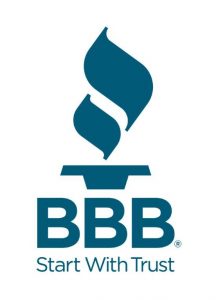By Sandra Guile
Better Business Bureau
Right now there is over $1.4 trillion owed to student loans or about 70 percent of college students are faced with a fairly large debt once commencement ceremonies are concluded. With billions of dollars being borrowed by students each year, it’s understandable that new grads are looking for help when trying to pay their loans back.
Scammers know this and use it to their advantage; they’ll often offer services that they don’t follow through on, causing even more repayment problems for graduates. But, not all repayment programs are out to get you – even if sometimes they seem too good to be true. There are free services available, but it’s always good to know what to look for before you sign up so that you aren’t taken advantage of.
Reliable Help Is Available
Enrollment in repayment programs is available at no cost to students at studentloans.gov. While there are other options – like the ones advertised on television and the radio – you should know that they don’t have the ability to negotiate with federal student loan creditors for a better deal on a borrower’s behalf. Repayment details like payment amounts, qualifiers, and requirements under the Income Based Repayment (IBR) plan or the Pay As You Earn (PAYE) plan are all set by federal law.

Repaying loans is a stressful, complex situation and some people may need help. Just like how some people do their taxes themselves while others hire a CPA, the same concept applies to student loan debt help. Don’t be afraid to ask.
Watch Out for Scams
There are three repayment scams graduates should be aware of. The first is an advance fee scam when a company that tells you they can get you the best interest rate and loan terms, but to get it you have to pay a small upfront fee. The fee can be anywhere from 1 – 5% of the total amount of the loan, to a flat fee paid in advance. Legitimate student loans, even from private lenders, typically don’t require an upfront fee to service the loan. If for some reason an authorized lender does charge a fee, it’s often deducted from your payment or disbursement check.
The next most common student loan repayment scam is a consolidation loan. This is one in which the company charges a consolidation fee but actually does nothing. The fee is sometimes called a processing fee, an administrative fee, or a consolidation fee. If you have a private student loan, there are a number of lenders who will refinance it for you.
The “Law Firm Lawsuit Student Loan Scam” has several variations, but typically a borrower is referred to a law firm by a supposed student aid company. The student aid company promises that this law firm can settle the student loan debt for thousands less than what’s owed.The law firm asks the borrower to make the full student loan payment to them and they’ll negotiate a settlement with your lender. What typically happens is that this unknown law firm doesn’t make any payments while negotiating with your lender causing the loan to go into default. The law firm will then claim you can’t pay your bills, and try to negotiate a settlement based on the amount that’s left.
What happens to you, as the borrower, is that your credit score is trashed, and you made thousands of dollars in payments to the law firm. In the end, there is no guarantee that you will be able to settle your loans. And even if you do, the process may take years, and you’ll still have to deal with the settlement in the end.
Common Red Flags
The important thing to remember about student loan debt is that it must always be repaid – it cannot be eliminated unless you have a federally-qualifying reason (death, permanent disability, school closure, falsification of documents, or identity theft). If you come across a company that promises to eliminate your student loan debt completely, it’s a scam!
Here’s what to look for:
• Any company that claims to have a relationship with the Department of Education – third-party companies (like most student loan repayment groups) do not have any relationship with the Department of Education.
• Promises of a set payment or forgiveness based on how much money you make – companies cannot guarantee an income-based repayment or loan forgiveness because both are subject to change depending on where you work.
• Guarantees of immediate loan forgiveness or cancellation.
• Companies that offer to buy the loan and settle it for you and promise to only charge a small fee.
• A statement that because your school closed or is being sued, your loan is automatically forgiven.
Report It
It’s an exciting time in your life when you’re a new grad – don’t let financial fraud or loan default ruin it for you. Find out more about avoiding repayment issues from the Department of Education, and learn about consumer protections on ftc.gov. If you encounter a loan repayment scam, make sure to report it to bbb.org/scamtracker.
Sandra Guile is the Community Outreach Specialist for BBB. She promotes BBB’s message of marketplace ethics through public speaking engagements, presentations, media relations, press releases, web content, and other written materials. Your BBB is located at 1 East 4th Street Suite 600 Cincinnati, Ohio 45202 – to reach the office, call (513) 421-3015.























